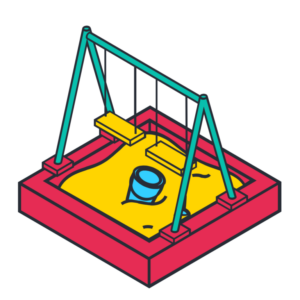Innovation In Singapore – Singapore’s Status as an Innovation Powerhouse
In 2017, Singapore was ranked as the seventh most innovative country in the whole world in the Global Innovation Index conducted by Cornell-INSEAD. The title of the most innovative country in Asia belongs to Singapore, surpassing countries such as South Korea (world ranking No. 11) and Japan (world ranking No. 14) that are renowned for innovation, hosting major tech corporations such as Sony, Samsung, Rakuten and Naver.
In light of his National Day Rally on Aug 2017, PM Lee echoed the need for Singapore to improve its innovational efficiency. Citing China as an example, where even common street vendors selling chestnuts accept e-payments through modes such as WeChat pay, Lee raised concerns over Singapore’s true innovative status, alluding to the fact that Singapore still lags behind many countries in Asia.
Despite the high ranking and the myriad of Smart Nation initiatives, such as Robotics, AI in lamp posts to detect uncanny activity and the soon-to-be-launched mobile Parking-App that will replace traditional parking coupons, there is a feeling deep down that Singapore is not quite the innovation hotbed as perceived by external bodies and the world.
3 Perspectives To Become An Innovation Powerhouse
Here are 3 perspectives we offer on Singapore’s status as an innovation powerhouse and what we can do to improve its prospects for long-term innovation excellence.
1. Not Enough Reward/Desire for Risk-Taking
Kicking off, as a society, we simply do not place enough emphasis on risk-taking. Schools and universities train students to work, parents encourage their children to study hard in order to secure jobs in large multinational firms. As a result, while Singaporean students are consistently ranked first in worldwide student assessments, such as Programme for International Student Assessment (PISA), mugging words from a textbook and spewing them on a piece of paper, unfortunately, does not equate to and induce innovative intelligence.
Consequently, Singapore also ranked a lowly 24th in displaying innovation and entrepreneurship through practicality by the same Global Innovation Index (2017).
Whilst we have tried to advocate the ‘Teach Less, Learn More’ attitude, our education system still puts emphasis on academic rigour at the expense of creative thinking.
At Citadel Search, this is what we observe even in graduates, the risk-taking mindset just isn’t there and the wish to take the road less travelled is often treaded with caution, or sometimes even feared. Students generally score better in the competency of ‘Planning’ and ‘Analysis’, but do not do as well in ‘Creativity’ and ‘Tolerance of Ambiguity’ in Assessment Centers.
What could be done to improve? In theory, it’s fundamental, commencing from primary school to tertiary education, dilute the emphasis on grades and instead incorporate assessments to reward unique concepts and ideas generated.
In the workplace, even Government organisations can explore to ease up on the fixed practices of bureaucracy and instead reward innovation. A client of Citadel Search incorporates an ‘Innovation Day’ in their company, where every Friday afternoon employees are encouraged to volunteer their innovative ideas. That is a good start!
The path to changing mentality is not a bed of roses, it’s a pit of fire; however, with the correct initiatives and foundations put in place by the nation’s Leaders, Executives, Workers, Parents and Students alike, it is possible to spark a movement that can inspire an environment conducive for producing innovation.
2. Lack of an Innovation Sandbox – Franchising offshore innovations doesn’t make us innovative!
In 2016, The Monetary Authority of Singapore (MAS) released a proposal for creating an ‘Innovation Sandbox’, a metaphor that encapsulates a test-bed for generating innovations without consequences, for Fintech companies. Innovation Sandboxes are essentially a test environment where business/technology models can be tested in a virtual reality or simulation before being deployed in reality.
 In a bid to test the effects of new financial services that could be deployed in Singapore, the MAS took a definitive step in the right direction to offer an incentive for firms to innovate with freedom.
In a bid to test the effects of new financial services that could be deployed in Singapore, the MAS took a definitive step in the right direction to offer an incentive for firms to innovate with freedom.
With the lack of Innovation Sandboxes in Singapore, it’s also no coincidence that the country has yet to produce truly innovative startups; and as you may have guessed, franchising offshore innovations does not constitute as “truly innovative”.
Startups such as HonestBee and Redmart adopted the online-shopping model that American and European supermarkets have been employing for almost a decade. Viki, an online-streaming platform for the latest Asian TV shows, closely mirrors NetFlix’s model. Whilst Grab has done extremely well in growing the business, its creators creators openly admit to using the Uber concept.
The examples listed are only the big ones, in fact, a simple Google search will acquaint you with the fact that many of Singapore’s most well-funded startups are localised versions of business models tested and proven on foreign shores.
With Singapore placed at 78th in the world by a Cornell-INSEAD (2016) study in terms of actually achieving innovation efficiency – the ability to increase productivity via innovation, local Singaporean organisations and Governmental bodies may benefit from an increased source of innovative ideas that arise from the Sandbox, which may additionally aid Singapore in producing a successful and truly innovative startup.
Quoting Jack Ma, who runs one of the world’s most successful and promising company, Alibaba, “Don’t be the best, be the first!”. Let’s not just repeat what others have done!
3. Startup Founders, VC’s in the Board of Singaporean Firms
While an Innovation Sandbox increases the chances of substantial innovative concepts pouring in, it’s important to note that many of these will come in ‘beta-versions’ and require refining and heavy testing. What would catapult and give larger Singaporean firms, including Governmental organisations, a significant edge over similar associations in the region is the ability to incorporate successful startup founders, venture capitalists, entrepreneurs and techies into Board of Director positions.
In the fast-evolving ever-changing world today, Singaporean firms need to leverage on the technologically savvy millennials and at the same time harness the wisdom of the experienced management members to work together to be one step ahead in front of disruption. Those who do not do this well, is often a game-over.
Staying Connected
At Citadel Search, we’ve noticed that there is a stark difference in the governance of startup boards, as compared to local/Governmental boards, in that startup boards are filled with the aforementioned founders, venture capitalists, entrepreneurs and techies that focus on the innovative growth of the company, understanding the importance of breaking boundaries in order to succeed.
Their raw energy and passion certainly rubs off when we work with them, almost always passionate and you often wonder where they get their adrenaline from. We at Citadel Search are gratified to work with more local innovation start-ups that is filling up their boards with such members.
A board has a responsibility of developing character in organisations, to set the pace for current and future operations and to mandate profitable connections that drive business growth; not to just offer alternative views.
Thus, it may be advantageous for Singaporean organisations, private and public, to integrate these startup personnel in board positions to learn a fresh perspective in growth and transformation in their businesses; at the very least, to head an innovation audit to assess firms’ competence in innovating and growing. Rather than worrying about disruption, be the disruptors!
In conclusion, while Singapore certainly isn’t the least innovative country in Asia, it is difficult to justify its succession to the top, as expressed by PM Lee, especially when there are countries much ahead, in both innovation and innovative culture.
At Citadel Search, we’ve seen an expansion in Innovation-related roles, with many of our candidates securing Innovation Manager and Innovation Director positions in our clients’ leading Fintech and HealthTech companies. Local Start-ups are also getting back of the house filled with the right engines by hiring Developers and Data Analytics Consultants etc.
Innovation is the new kid on the block in this digital era, with roles opening up in abundance; while traditional roles are on the verge of being phased out by AI. We would love to see more Singaporean candidates filling up these roles, which can only happen when Singapore as a society adopts these practices and becomes truly innovative.
Singapore and Singaporean companies must start to rely less on foreigners/foreign models and give chances to local youth, startup founders and entrepreneurs to drive innovation in businesses throughout Singapore.
Accept innovation, not reject it, it IS possible. Believe in our people, believe in the vision.
To get the latest job updates, check out our job postings. If you are interested to learn more on how you can scale up your innovative team, contact us.

